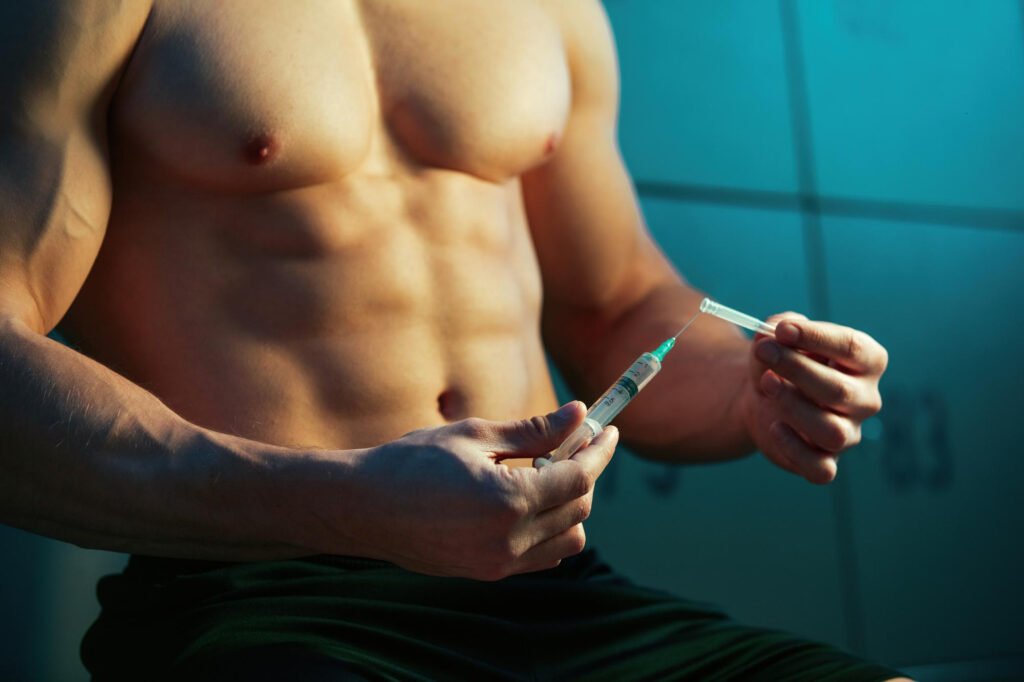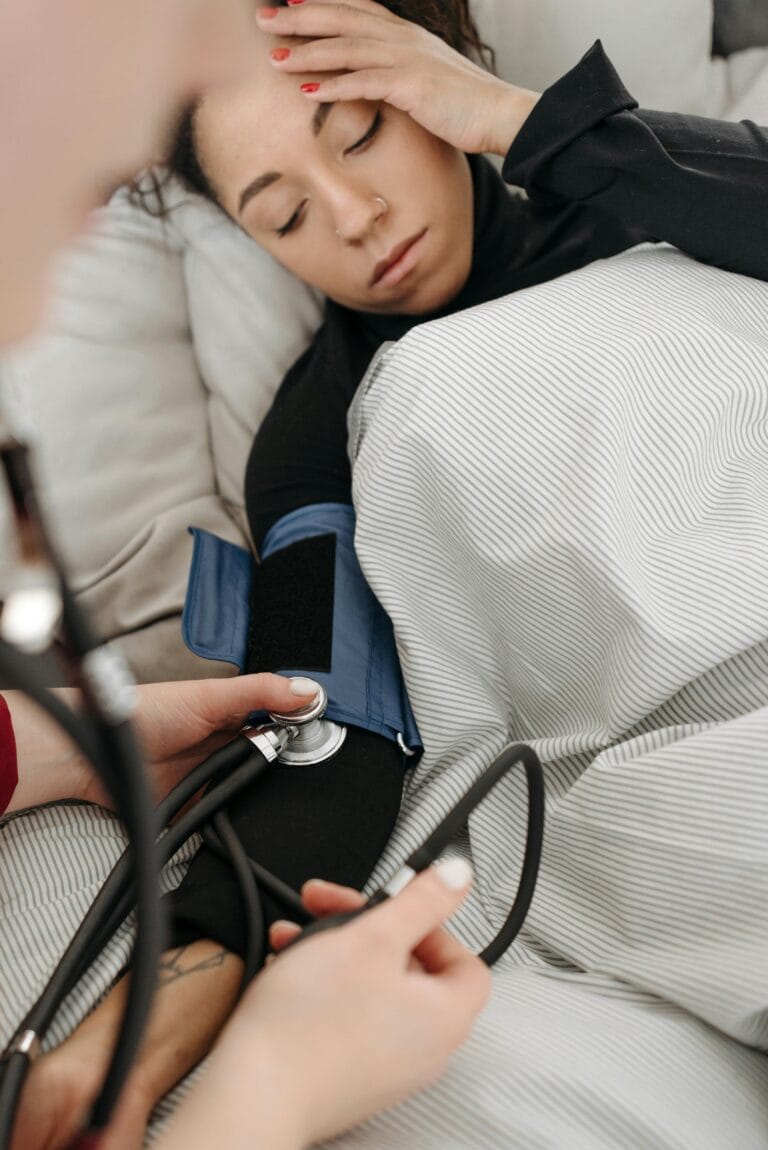FREE SHIPPING OVER $50
10 Testosterone Killers You’re Probably Doing—Fix These to Feel Stronger Fast

Testosterone is a vital hormone that plays a major role in a man’s health, influencing everything from muscle mass and energy levels to mood and libido. When your testosterone levels are balanced, you feel more energetic, focused, and powerful. But when they dip, the effects can be noticeable, leaving you feeling lethargic and unmotivated.
While some factors are out of your control, many of the habits you engage in daily can be silently sabotaging your testosterone production. The good news is that with a few simple adjustments, you can take control of your hormones and start feeling stronger, faster. This guide will walk you through 10 common mistakes that act as silent testosterone killers and give you actionable advice to get back on track.
The 10 Mistakes Sabtaging Your Testosterone
1. Skipping Quality Sleep
Your body performs most of its critical hormone regulation and repair while you sleep. Research shows that testosterone production is at its peak during deep sleep cycles. Consistently getting less than 7-9 hours of quality, uninterrupted sleep can dramatically lower your T-levels.
- The Fix: Prioritize sleep as a non-negotiable part of your daily routine. Create a consistent sleep schedule, make your bedroom dark and cool, and avoid screens at least an hour before bed.
2. Ignoring Chronic Stress
Chronic stress is one of the most significant disruptors of hormone balance. When you’re stressed, your body releases a hormone called cortisol. High cortisol levels can suppress the production of testosterone, creating a vicious cycle of stress and low energy.
- The Fix: Actively manage your stress. Incorporate simple practices like meditation, deep breathing exercises, or a short walk into your day. Find a hobby you enjoy and dedicate time to it to help your mind and body unwind.
3. Overlooking Your Body Fat Percentage
Excess body fat, particularly around the midsection, can negatively impact your testosterone levels. Fat cells contain an enzyme called aromatase, which converts testosterone into estrogen. The more body fat you carry, the more this conversion happens, leading to lower free testosterone.
- The Fix: Focus on maintaining a healthy weight through a balanced diet and regular exercise. Adding lean muscle mass through strength training is especially effective, as muscle tissue is more metabolically active and helps burn fat.
4. Consuming Endocrine-Disrupting Chemicals
Many common products contain chemicals that mimic hormones in the body, known as endocrine disruptors. These can interfere with testosterone production and hormonal balance.
- Phthalates found in plastics and some personal care products.
- PFAS in non-stick cookware and food packaging.
- Glyphosate, a common herbicide, found in non-organic foods.
- The Fix: Be mindful of the products you use. Opt for stainless steel or glass containers, choose organic foods when possible, and read labels on personal care products to find phthalate-free alternatives.
5. Exposing Yourself to Excessive EMF
Electromagnetic fields (EMF) from electronic devices like smartphones, laptops, and Wi-Fi have been a subject of concern regarding hormonal health. Some studies suggest that prolonged exposure to these fields, especially near the body, could negatively affect testosterone production.
- The Fix: Minimize your exposure. Don’t keep your phone in your pocket all day, and avoid using your laptop directly on your lap. Use wired headphones or speakers when possible, and make an effort to unplug devices or practice a digital detox to give your body a break.
6. Wearing the Wrong Sunscreen and Deodorants
While protecting your skin is crucial, some conventional sunscreens and deodorants contain chemicals that are known to be endocrine disruptors. Synthetic toxins like parabens and aluminum can be absorbed through the skin and interfere with hormone function.
- The Fix: Choose natural, mineral-based sunscreens that use zinc oxide or titanium dioxide. For deodorants, opt for aluminum-free options or natural alternatives that use ingredients like baking soda or essential oils.
7. Relying on Tap Water
Water is essential for every bodily function, but the quality of your water matters. Some tap water sources contain contaminants like atrazine, a pesticide that has been linked to hormonal imbalances.
- The Fix: Invest in a high-quality water filter for your home or opt for spring water. This simple step can help you avoid potential endocrine disruptors and ensure your body stays properly hydrated with clean water.
8. Neglecting Your Fitness Routine
Regular exercise is a powerful catalyst for boosting testosterone. While all forms of exercise are beneficial, strength training and high-intensity interval training (HIIT) have been shown to have a particularly strong effect on hormone production.
- The Fix: Don’t just rely on cardio. Incorporate a mix of weightlifting and resistance training into your weekly routine. Aim for 3-4 sessions a week to build muscle, burn fat, and naturally increase your T-levels.
9. Excessive Alcohol Consumption
While a single drink may not have a significant impact, excessive and chronic alcohol intake can have a negative effect on testosterone production. Alcohol can increase the activity of the aromatase enzyme, leading to higher estrogen levels and lower testosterone.
- The Fix: Moderation is key. Limit your alcohol consumption, and focus on staying hydrated with water. When you do drink, choose red wine or spirits in moderation rather than beer, which contains phytoestrogens.
10. Forgetting the Sunshine
The sun is your body’s primary source of Vitamin D, a nutrient that plays a crucial role in testosterone synthesis. Vitamin D deficiency is directly linked to low testosterone.
- The Fix: Make an effort to get 15-20 minutes of unprotected sun exposure each day, especially in the morning. If you live in a climate where this isn’t possible, consider a high-quality Vitamin D3 supplement, but be sure to consult a healthcare professional first.
The T-Boost Playbook: Building a Natural Foundation
While avoiding the mistakes above is crucial, actively building healthy habits can accelerate your progress. Think of these as the positive steps you can take to create a hormonal environment where testosterone can thrive.
The Power of a Balanced Diet
Your diet is more than just fuel; it’s a blueprint for your hormone production. Focus on:
- Healthy Fats: Include healthy fats from avocados, olive oil, and nuts. These are essential for hormone synthesis.
- Lean Protein: Consume lean meats, eggs, and fish to support muscle growth and overall health.
- Micronutrients: Ensure your diet is rich in zinc (found in nuts, seeds, and lean meat) and magnesium (found in leafy greens, nuts, and whole grains), as both are vital for testosterone production.
The Role of Supplements (Use with Caution)
Certain supplements may support your body’s natural processes, but they are not a replacement for a healthy lifestyle. Always consult a healthcare professional before adding any new supplements to your routine.
- Ashwagandha: An adaptogenic herb that helps reduce stress and can positively impact testosterone levels.
- Fenugreek: A herb that may help prevent the conversion of testosterone to estrogen.
- Zinc and Vitamin D: Both are crucial vitamins for hormone synthesis. If your diet is lacking, a supplement may be beneficial.
Taking Control of Your Health
Ultimately, the journey to boosting your testosterone naturally is about making small, consistent changes that add up over time. By consciously avoiding the testosterone killers in this list and focusing on positive lifestyle habits, you’re not just optimizing a hormone—you’re investing in your long-term health, energy, and well-being. Start today, and you’ll be on your way to feeling stronger and more vital.







